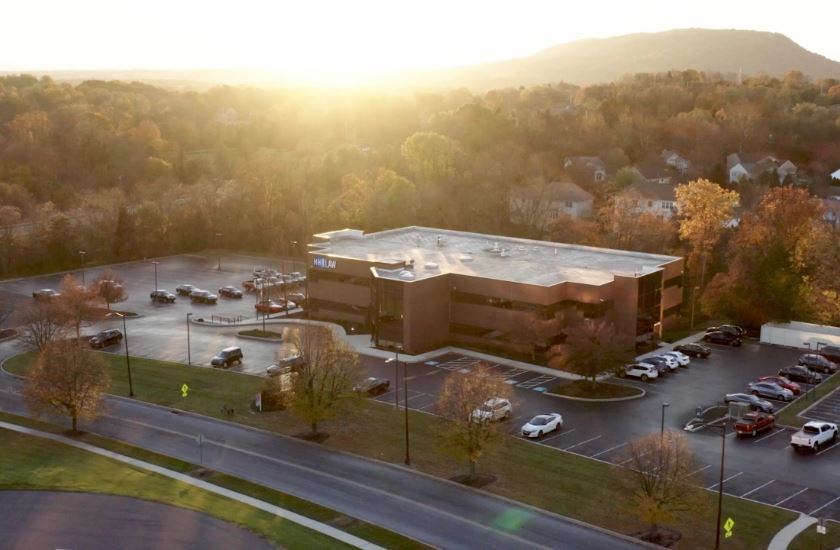
POWERFUL LEGAL HELP FOR spine INJURY VICTIMS
CALL THE FIRM WITH A
WINNING REPUTATION
Pennsylvania Spinal Cord Injury Lawyers
Advocating for Spine Injury Victims in Carlisle, Hanover, Harrisburg, Lancaster, Schuylkill County & York, Pennsylvania
Spinal cord injuries rob us of the ability to make a living and weaken our control over our future. They cost tens of thousands of dollars over the course of our lives—sometimes millions of dollars. Buying equipment, getting in-home care, modifying our house and our lifestyle, ongoing hospitalization—these changes have a steep and non-negotiable cost. With no work and high treatment costs, what can families do?
When people suffer spinal cord injuries in accidents, they call the Pennsylvania spinal cord injury attorneys at Handler, Henning & Rosenberg LLC. We build strong cases to help people file Social Security disability claims, receive workers' compensation benefits, and file personal injury lawsuits against negligent parties to rebuild their lives. Since 1922, our firm has helped our clients win tens of millions of dollars.
Our clients pay nothing unless we win! Call (888) 498-3023 to review your options for free.
Spinal Cord Injury Causes & Who's Legally Responsible
Each year, approximately 17,700 new cases of spinal cord injuries occur in the United States, affecting an estimated 302,000 people nationwide. The leading causes of spinal cord injuries are:
- Motor Vehicle Accidents: Car, motorcycle, and truck accidents are the leading cause of SCIs, accounting for nearly 39.3% of all cases in the United States each year. The force of the collision can cause severe damage to the spinal cord, resulting in partial or complete paralysis.
- Falls: Falls, particularly from significant heights or on slippery surfaces, can lead to severe spinal injuries. This is especially common among older adults and those working in construction or similar high-risk occupations. Falls contribute to about 31.8% of spinal cord injuries in the U.S.
- Violence: Acts of violence, such as gunshot or stab wounds, can penetrate the spinal cord and cause irreparable damage. 13.2% of spinal injuries are caused by violence.
- Sports Injuries: High-impact sports, such as football, rugby, or gymnastics, carry a risk of spinal cord injuries, especially when proper safety measures are not followed.
- Medical Malpractice: Surgical errors or improper handling during medical procedures can result in spinal cord damage, highlighting the importance of skilled and careful medical care.
- Workplace Accidents: Industrial accidents, falls from scaffolding, or improper handling of heavy machinery can cause spinal injuries in the workplace.
Determining liability in spinal cord injury cases involves identifying the parties whose negligence or intentional actions contributed to the injury. In motor vehicle accidents, for instance, the at-fault driver can be held liable if the injury resulted from their negligence, such as speeding, distracted driving, or driving under the influence. Property owners may also be responsible if a fall occurs due to unsafe conditions on their premises, such as wet floors or broken staircases, since they have a duty to maintain a safe environment. Even attacks or assaults on another's property could be the property owner's fault.
Employers are another group that can be held accountable, particularly when workplace accidents occur. They are required to provide a safe working environment and adhere to safety regulations. If an injury happens due to inadequate training or failure to follow safety protocols, the employer may be liable.
Additionally, manufacturers can be held accountable if a defective product, such as faulty sports equipment or unsafe machinery, causes a spinal injury. In such cases, the manufacturer is responsible for ensuring their products are safe for use. Understanding who is responsible is crucial for victims seeking compensation to cover medical expenses, rehabilitation, and other related costs. Legal assistance is essential in navigating the complexities of these cases and ensuring justice is served.
The Ongoing Cost of Spinal Cord Injuries (SCIs)
Well over a quarter of a million Americans live with a disability caused by a spinal cord injury, ranging from incomplete paraplegia to high tetraplegia. The costs of these injuries vary according to the severity of paralysis, but all of them are costly, requiring medication and assistive devices as well as ongoing care.
Some of the ongoing costs associated with spinal cord injuries include:
- Medical treatment and surgeries
- Rehabilitation and therapy
- Assistive devices and home modifications
- Lost wages and future earning potential
- Caregiver expenses
- Mental health support
On average, a person with an SCI-related disability can expect to spend between $275,000 and $920,000 on treatment in their first year. Annual care costs after the first year average $33,500 on the low end, but costs reach as high as $164,500 for people with complete tetraplegia. These costs don't include the costs of adjusting to your new disability—making home renovations, buying a new vehicle to accommodate you or a loved one, or the loss of income from losing a job or needing a loved one to stay home.
Most families are completely unprepared to bear these costs, but few of them have a choice. The families of people with spinal cord injuries often go deep into debt to provide a better quality of life for their loved ones, but at a steep price. The cost of a permanent disability falls on the injured and their loved ones. Our Pennsylvania spinal cord injury attorneys know it doesn't have to be that way.
Recovering Just Compensation After a Spinal Cord Injury
Recovering just compensation after a spinal cord injury involves holding the at-fault parties legally accountable for their actions. This process typically starts with identifying the individuals or entities responsible for the injury, which may include negligent drivers, employers who fail to maintain safe working conditions, property owners who neglect to address hazards, or manufacturers of defective products.
Once liability is established, victims can file a personal injury claim to seek compensation for their losses. This can cover medical expenses, rehabilitation costs, lost wages, and the pain and suffering endured due to the injury.
In these cases, a thorough investigation is crucial to gather evidence that supports the claim. This might involve collecting medical records, accident reports, eyewitness testimonies, and expert opinions. Working with an experienced Pennsylvania spinal cord injury attorney at Handler, Henning & Rosenberg LLC can significantly improve your chances of securing fair compensation.
Why Spine Injury Victims in Pennsylvania Rely on HHR
We are one of the most established law firms in the state. We've been fighting for motorists, workers, and victims of negligence for nearly a century, and we'll continue fighting for our communities for decades to come. Entire generations have come to rely on us and our counsel when they need it most.
Why? Because HHR has the resources to make sure every source of compensation gets explored in every case. We've helped people file for Social Security disability since it was signed into law, helped hundreds of people get access to workers' compensation benefits, and sued the biggest insurers in the nation for the money our clients deserved. Medical costs, home alteration, new equipment—compensation can cover most, if not all, of it. We've helped our clients get all this and more.
Don't let your time run out. Call (888) 498-3023 or contact us online for a free consultation. We have offices in Harrisburg, York, Carlisle, Hanover, Lancaster, and Schuylkill County.
HHR: A Family Story
Handler, Henning & Rosenberg has always been a family business. It's been 100 years, and if we look into the future another 100 years, we still see our family helping yours. We've been around for this long for a reason: we care about our clients and our communities, and every person at our firm does everything they can to help every client we represent.

















